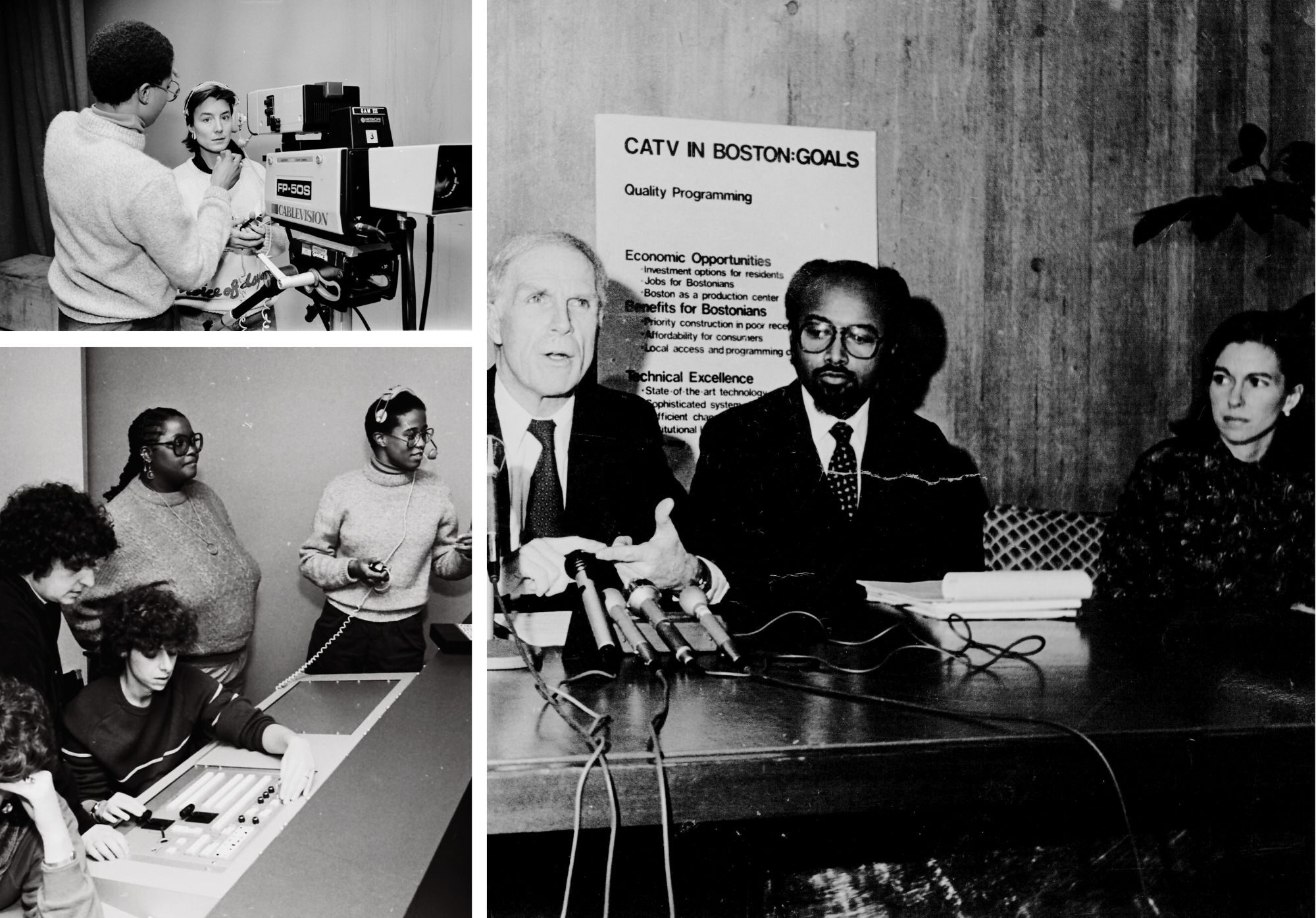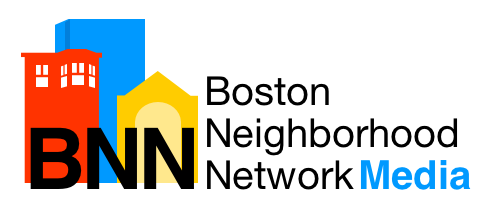Mission & History
 Pictured left to right: Mayor Kevin White, Charles Beard, Micho Spring
Pictured left to right: Mayor Kevin White, Charles Beard, Micho Spring
MISSION
Our mission is to connect, inform and empower those who live, work and study in Boston through distinct and diverse community media programming, education and services.
HISTORY
Since Boston’s first cable franchise agreement in 1983, BNN has been managed by the Boston Community Access and Programming Foundation, Inc. (BCAPF). Following four years of studies, reports, advisory commissions, and public hearings, Mayor Kevin White issued a Request For Proposals that incorporated the concept of a non-profit “access and programming” corporation. Based on recommendations of the Cable Access Advisory Committee, the Mayor awarded a 15-year license to build and operate a cable system to Cablevision of Boston, which agreed to provide an annual franchise fee in support of public, educational, and government access to this new technology.
BCAPF was founded in 1983 as a 501(c)(3) non-profit to “ensure access to channels and facilities for all Boston residents, groups and institutions and to provide public education and training regarding the use of access facilities and channels.” Its founding document, crafted by Attorney Charles J. Beard and others, reflected a far-sighted vision. Our mission defined a long-range vision that provided immediate community benefits, and anticipated technological advances would always emerge over the horizon. BNN’s stated purposes are to “foster and generate experimental uses” and “to distribute programming, by cablecasting, broadcasting, or by any other means, within and without the City of Boston.”
Over the years, BNN has operated access centers in many neighborhoods, including Jamaica Plain, South Boston, the South End, and a downtown facility with a studio for Boston-serving non-profit organizations. BNN began operating with a full-service production studio in Roxbury, a training and field production access center in East Boston, and a mobile production truck that could travel across the city. BNN trained groups in Allston-Brighton with its mobile production truck while a field coordinator worked with the Dorchester community.
As technology changed, BNN changed with it, adapting equipment and training to meet the needs of Bostonians. In 2001 BNN added a digital multimedia lab to its menu of services and began the transition from analog to digital technology. In 2005 BNN purchased a former MBTA Power Station in Egleston Square, launched a successful capital campaign to rehabilitate the building into a state-of-the-art media center, and opened the doors to its new home in 2007.
In Boston, we are fortunate to have strong support from the city of Boston and local cable providers committed to giving something back to the people who provide their profits. These franchising agreements have resulted in over 30 years of community wide benefits that have become ingrained in the city’s civic, social, and cultural fabric.
